When used as directed by a qualified physician, prescription drugs offer tremendous benefits for people who have been suffering from a wide range of physical and psychological health concerns. Unfortunately, every medication is accompanied by certain risks and side effects. In the case of some prescription drugs, these risks include addiction.
Throughout the 21st century, families and communities throughout the United States have been devastated by skyrocketing rates of prescription drug abuse and addiction. Prescription drugs that contain opioids such as oxycodone and hydrocodone have been at the forefront of this epidemic, but they are not alone. Prescription drugs that include benzodiazepines, stimulants, and other substances have also contributed to this ongoing public health crisis.
Thankfully, there is some good news about prescription drug addiction: It is a treatable condition. When someone who has developed an addiction to a prescription drug receives appropriate care from a reputable provider, they can stop abusing this drug and achieve long-term recovery.
Signs & Symptoms of Prescription Drug Addiction
The following signs and symptoms may indicate that a person has developed a prescription drug addiction:
- They use prescription drugs more frequently, in larger amounts, or for a longer period of time than directed by their physician.
- They have tried to borrow or steal drugs that were prescribed to someone else.
- They have visited several doctors in an attempt to receive multiple prescriptions. This is known as doctor shopping. In some states, this practice is illegal.
- They have begun to have unexplained financial problems.
- They exhibit dramatic changes in mood, attitude, and energy.
- They appear to be confused or disoriented.
- They struggle with balance, coordination, and other motor skills. =
- They have difficulty focusing, concentrating, or even following a basic conversation.
- They have unintentionally lost or gained a significant amount of weight.
- They are often itchy or constipated.
- They seem to be neglecting their appearance, grooming, and personal hygiene.
- They have had a precipitous drop in performance at work or in school.
- They are secretive or misleading about where they’ve been and what they’ve been doing.
- They no longer spend much time with friends and family members.
- They have stopped participating in hobbies, activities, or other pursuits that used to be very important to them.
What Causes Prescription Drug Addiction?
There is no single cause of prescription drug addiction. However, researchers have identified several experiences, characteristics, and genetic factors that may increase a person’s likelihood for developing a prescription drug addiction. The following may be potential risk factors for prescription drug addiction:
- Having an injury, illness, or chronic medical condition that is treated with a prescription drug
- Growing up in an environment where prescription drug abuse was tolerated or even encouraged
- Having close family members who have struggled with substance abuse and addiction
- Having a history of mental illness in your family
- Personal struggles with certain mental health disorders
- Personality traits such as novelty-seeking and impulsivity
Prescription Drug Addiction Statistics
The following statistics about prescription drug abuse in the United States are from the National Institute on Drug Abuse (NIDA):
- More than 9 million people age 12 and older (or about 3.3% of the population in that age range) said that they had abused a prescription painkiller at least once in 2020.
- About 2.3 million people age 12 and older (0.8% of that age group) developed an addiction to a prescription opioid in the past 12 months.
- Prescription drug overdoses were responsible for more than 34,000 deaths in 2020.
- The types of prescription drugs that are most commonly involved in overdose deaths include opioids (16,416 overdose deaths in 2020) and benzodiazepines (12,290 deaths).
Effects of Untreated Prescription Drug Addiction
It is difficult to accurately describe the full scope of devastation a person may experience if they fail to get necessary treatment for a prescription drug addiction. This type of addiction can have a negative impact on a person’s physical, mental, social, and economic well-being.
The range of potential negative effects of untreated prescription drug addiction can vary depending on several factors, including the person’s age, which type of prescription drug addiction they have developed, and if they are also living with a co-occurring mental health disorder. With these caveats in mind, the following are possible effects of untreated prescription drug addiction:
- Damage to the liver, kidneys, heart, and brain
- Physical injuries due to slips, falls, or other impaired behaviors
- Medical problems due to poor self-care
- Being arrested, fined, and incarcerated
- Academic expulsion
- Job loss
- Long-term unemployment
- Financial difficulties
- Conflicts with friends and family members
- Separation, divorce, and loss of child custody
- Onset or worsening of co-occurring mental health disorders
- Social withdrawal and isolation
- Loss of hope for the future
- Suicidal ideation
- Overdose
- Death
Levels of Care for Prescription Drug Addiction Treatment
Treatment for prescription drug addiction can occur at several levels. Some people may only receive care at one level, while others may participate in several of the levels listed below. As we do with all treatment-related decisions at CenterPointe Hospital, we base our level-of-care recommendations on a thorough assessment of what will best serve the specific needs of each patient.
Levels of care we offer at our hospital include:
- Detoxification: This level of care is commonly referred to as detox. It is a short-term option, with a typical length of stay of seven to 10 days. If the distress of withdrawal has prevented a person from ending their prescription drug abuse, detox may be the ideal place to start treatment. During detox, patients are under the care of a team of dedicated experts who can keep them safe and as comfortable as possible. Once a patient has successfully rid their body of prescription drugs, they can transfer directly to the next phase of their treatment.
- Inpatient treatment: Inpatient treatment for prescription drug addiction is also a short-term experience. Most adults who receive inpatient care at our hospital remain in treatment for seven to 10 days. Inpatient treatment for prescription drug addiction at our hospital features a customized variety of evidence-based services, comfortable patient rooms, nutritious meals, and round-the-clock care from a team of skilled professionals.
- Residential treatment: Adolescents and adults who are struggling with prescription drug addictions can receive longer-term live-in support through our residential treatment services. Residential treatment typically lasts 14-28 days and includes a wide range of customized therapies and services that can promote lasting recovery.
- Intensive outpatient programming (IOP): Some adults transfer to one of our IOPs after completing a higher level of care at our treatment center. Others enter treatment directly at this level. In either case, our IOP services offer a structured connection with quality clinical care without a residential requirement. Our IOPs are in session three days per week, three hours per day, for a total of nine weekly hours of care. Patients follow personalized prescription drug addiction treatment plans that may include a variety of therapies and services. When our IOP is not in session, patients may return to their homes or to a supported residence. Most people remain in care at the IOP level for four to six weeks, based on their progress and continued needs.
- Partial hospitalization programming (PHP): For patients who may need a more intensive level of support than our IOPs can provide, we offer a variety of PHPs across our different treatment locations. PHP participation is typically a short-term, in-depth treatment experience, with programming offered daily for four to five hours each day.
Treatment Options for Prescription Drug Addiction
When you receive prescription drug addiction treatment at CenterPointe Hospital, your care will be customized according to your unique history, needs, and goals. Depending on several personal factors, your treatment may include elements such as the following:
- Basic medical care
- Medication management services
- Medication-assisted treatment (MAT)
- Family therapy
- Process groups
- Psychoeducational groups
- Skills development groups
- Art and music therapy
- Individual therapy
- Dialectical behavior therapy (DBT)
- Cognitive behavioral therapy (CBT)
- Motivational interviewing
Please note that some of the therapies and services listed above may be available only at certain levels of care, while others may be provided only on an as-needed basis. To learn more about these services, or for details about which elements of care may be included in your treatment plan, please contact us directly.
Benefits of Receiving Prescription Drug Addiction Treatment
Here are just a few of the many potential benefits of receiving prescription drug addiction treatment at CenterPointe Hospital:
- Safety: Nothing is more important to us than the safety of our patients, staff, and visitors. We work diligently to ensure the continued well-being of each person who walks through our doors. The moment you arrive at our hospital, you minimize your risk for future harm from a prescription drug addiction. Here, you can also begin to heal from any damage you have already incurred.
- Personalization: Prescription drug addiction affects different people in different ways. At CenterPointe Hospital, we believe that you deserve a customized treatment plan that addresses how you, specifically, have been impacted by a prescription drug addiction and any co-occurring mental health disorders.
- Compassion: A prescription drug addiction can undermine your self-esteem and self-worth. It can even cause you to question if you deserve to live a healthier life. Throughout your time in our care, we will remind you that you are a valuable individual who is worthy of a much brighter future. At our hospital, you can rediscover your inherent skills and talents and reconnect with the best version of yourself.
- Community: An untreated prescription drug addiction can be isolating. When you enter treatment, you can discover the power of sharing support with others who have had similar experiences and are working toward common goals. Active engagement with the recovery community can be a vital source of support both during and after your time in treatment for a prescription drug addiction.
This content was written on behalf of and reviewed by the clinical staff at CenterPointe Hospital.






